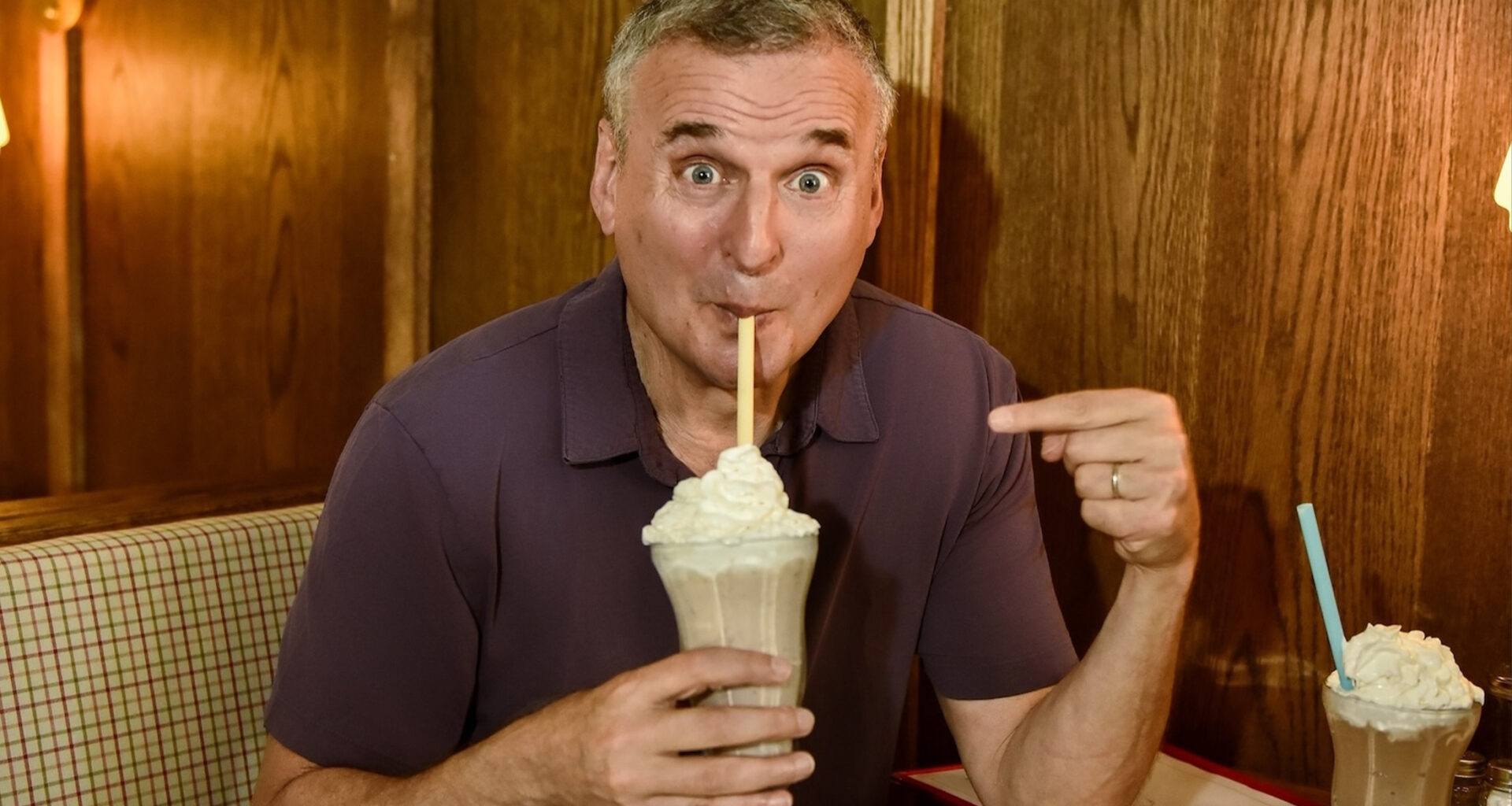Television writer and producer Phil Rosenthal had always loved the dining world. Then one day, his wife, Monica Horan — who starred on the 15-time Emmy-winning sitcom he created, CBS’s Everybody Loves Raymond — presented him with an opportunity to become a part of it.
“She said, ‘One of the moms at [our kids’] school is opening a restaurant. She wanted to know if you’re interested in investing,’” recalls Rosenthal over lunch in late August, nearly 25 years later. “I said, ‘I might be. Can I taste the food?’”
He knew investing in restaurants was risky. However, he tasted the food former Campanile chef de cuisine Suzanne Tracht intended for her classic American chophouse and declared he was “in.”
“This restaurant is still going: Jar,” he says of the Beverly Grove stalwart that opened in 2001. It was through Jar that Rosenthal encountered another renowned local chef: Nancy Silverton. “‘Oh, this famous creator of La Brea Bakery and Campanile is a friend of Suzanne Tracht?’” Rosenthal recalls learning. “She’s coming Monday nights to make mozzarella dishes at our bar? I’m like, ‘Great!’”
“That coincided with when I started testing the waters for the idea of what would become Mozza, at Jar,” Silverton relates over the phone. “We called it Mozzarella Monday, and I turned their bar into a very mini version of what was to become the mozzarella bar at the Osteria.”
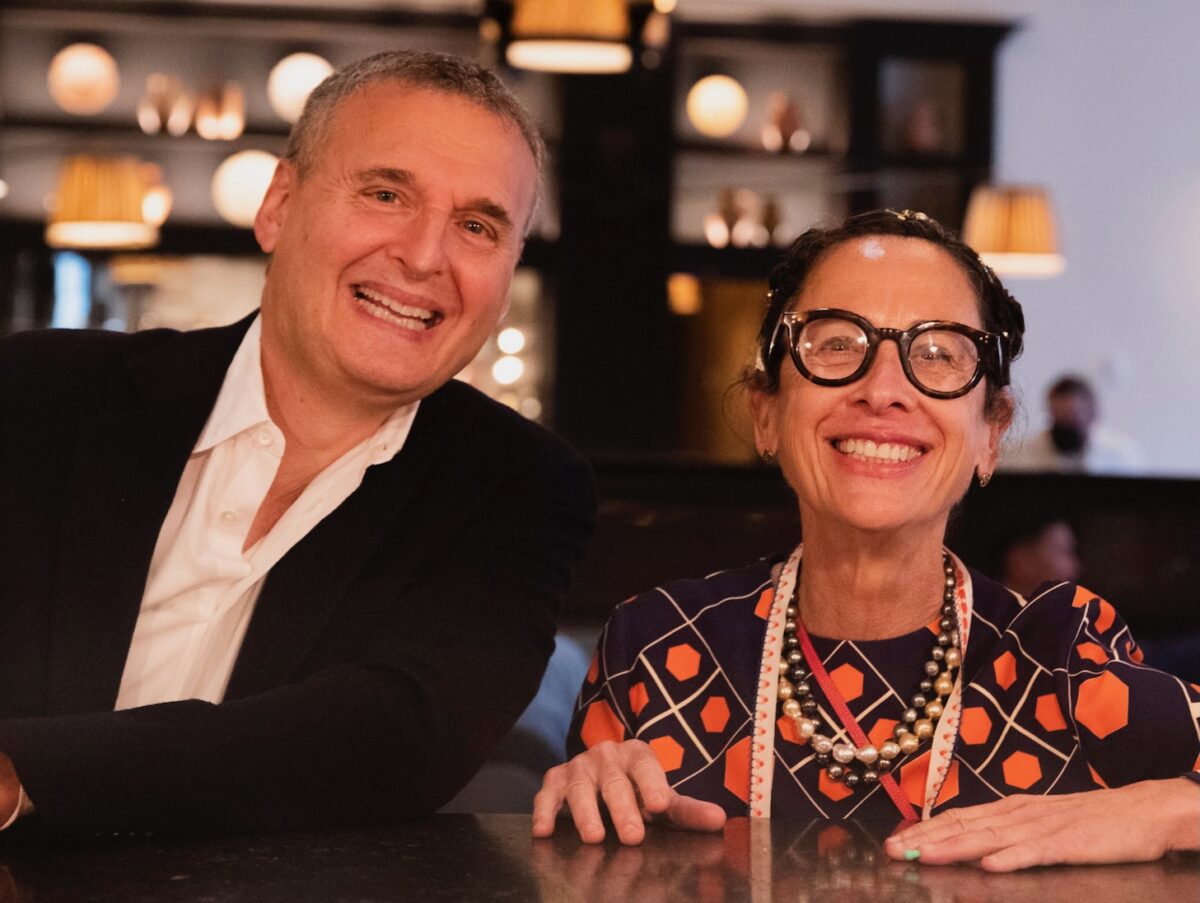 Phil Rosenthal and chef Nancy SilvertonCredit: Courtesy Nancy Silverton
Phil Rosenthal and chef Nancy SilvertonCredit: Courtesy Nancy Silverton
Rosenthal vividly remembers sitting there at the bar. “She pulls mozzarella and makes a beautiful dish. And says, ‘Try this,’” he says. “I’m like, ‘Wow. This is phenomenal.’ And Monday night becomes my favorite night of the week, because Nancy’s going to be there. Then I learned that this is a rehearsal for her, because she wants to open a place with Mario Batali. Babbo is the best restaurant in New York! They’re coming here? This sounds like an unbelievable dream.”
“He immediately expressed interest in being an investor at Mozza,” recalls Silverton — who notes that, while Rosenthal wasn’t then as active in the food community, she could sense his love for it. “When he talks about food, his world lights up. He just loves food!”
Rosenthal persisted. “They didn’t need investors, but I held onto her until they let me invest,” he says. “They felt sorry for me, and so that started my journey.”
In addition to Osteria Mozza (which opened in 2007 and has maintained its Michelin star since 2008), Rosenthal’s invested in other Silverton projects as well as French café République and other local eateries through the years. “I’m involved with like 25 things — everything from tiny things to big things,” Rosenthal says of his current portfolio. “Cooking is one of the arts to me: it makes the culture better. It makes life better for me, having great restaurants in our town.”
Considering it further, he hits upon the deeper reason he’s invested in so many restaurants in L.A. Adds Rosenthal, “A good restaurant transports you to another time and place.”
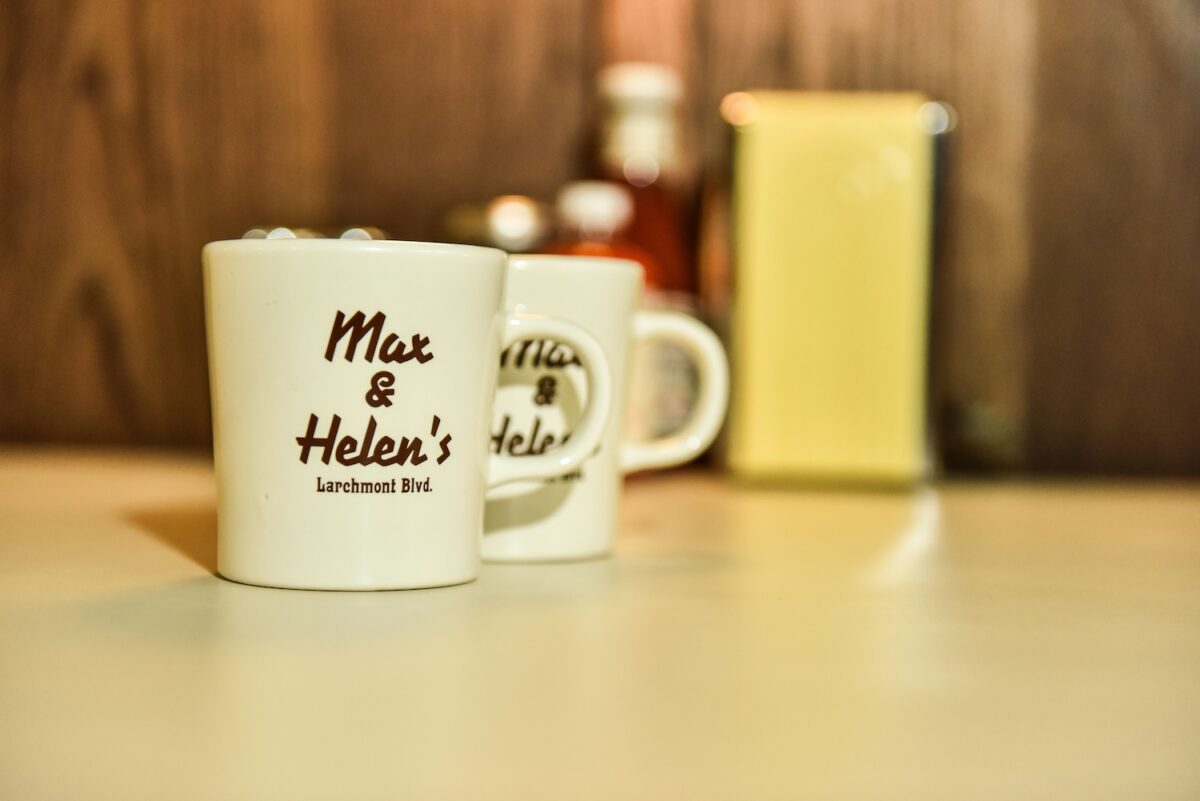 Max & Helen’sCredit: Photographed by Irvin Rivera
Max & Helen’sCredit: Photographed by Irvin Rivera
——
Scroll to continue reading
ONE “AMATEUR NIGHT” AT A New Jersey nightclub in the 1950s, an aspiring standup comedian named Max Rosenthal took the stage.
“My dad was a tailor in the Garment Center [of Manhattan],” says Rosenthal. “He liked telling old jokes on his nights off.” In the crowd that evening happened to be a female paralegal named Helen.
“My mom was on a date with another fellow, and saw this skinny tailor from New York get up and tell jokes — and she fell in love with him,” recalls Rosenthal. “She said, ‘I like this guy better than the guy I’m with.’ I owe everything to his sense of humor … and to her sense of humor, appreciating his.”
The Rosenthals were both German immigrants who sought refuge in Manhattan after surviving the Holocaust. “My mom was in a concentration camp,” says Rosenthal of Helen. “My dad got out of Berlin after Kristallnacht [the 1938 Nazi attack on Jews]. [They] didn’t have a lot of money,” he explains. But what they had in abundance was humor. “They were drop-dead funny,” says Rosenthal, who was born in Queens and raised upstate in New City, Rockland County, along with his younger brother, Richard. “When we weren’t yelling in the house, we were laughing.”
His parents’ talents didn’t extend to the kitchen. “The one thing they were not was cooks,” Rosenthal says. “[They had] very simple tastes. We never had a bottle of hot sauce in the house,” he says, pointing to one on the table. “My dad, if he had a sandwich with meat on it, there was no condiment. That’s how plain everything was. It was just salt! My joke was, ‘In our house, meat was a punishment.’”
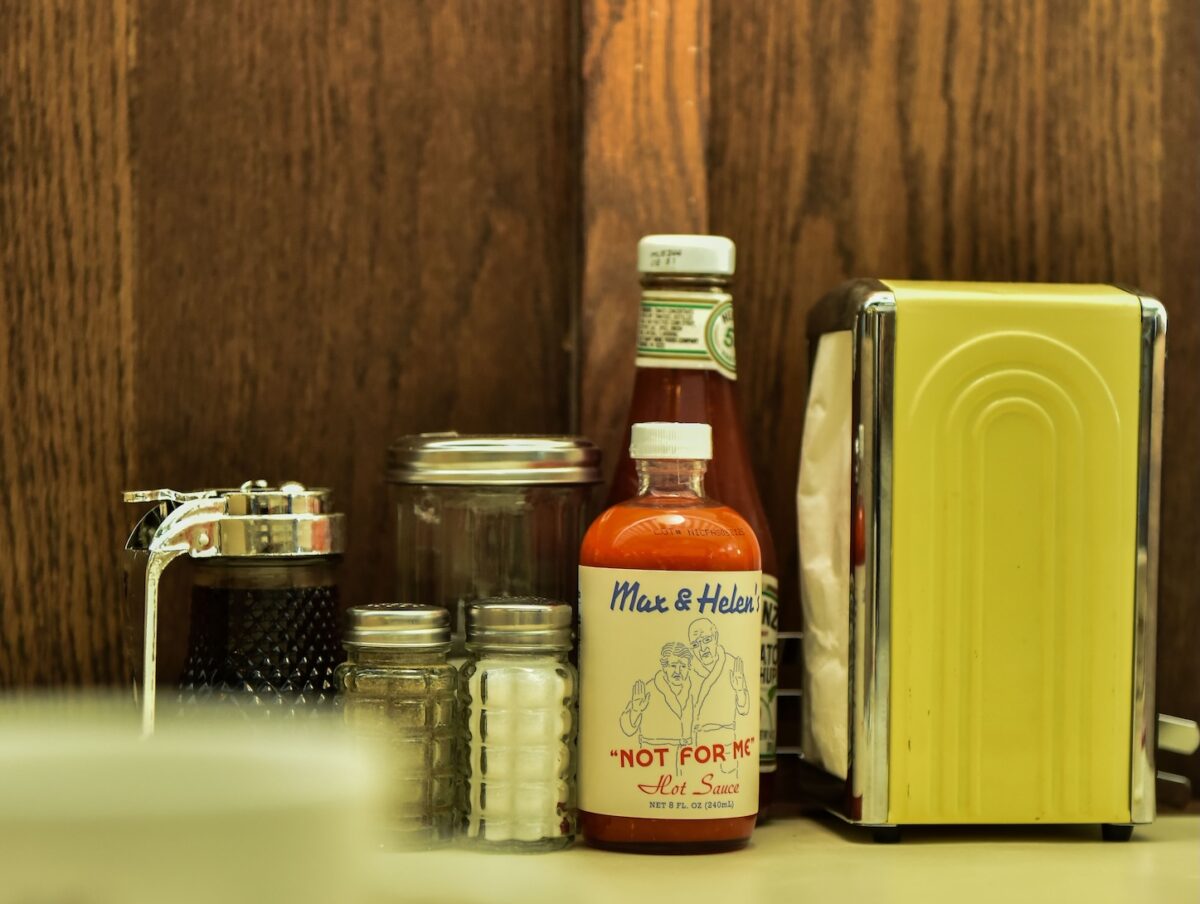 Max & Helen’s hot sauceCredit: Irvin Rivera
Max & Helen’s hot sauceCredit: Irvin Rivera
Everything changed for Rosenthal in the late ’70s when he started college. “Just going to Hofstra University on Long Island, and going to a cheap Italian restaurant with my friends and having pasta with sauce, I went out of my mind! They said, ‘Why are you so excited?’ I said, ‘This pasta is the best thing I ever ate. … That’s garlic?’ I never had that flavor! So it’s like in The Wizard of Oz — when [Dorothy] opens the door, and now the movie’s in color.”
At 17, Rosenthal discovered a whole world of spicy and flavorful New York food. Then, he went to Europe — on a courier flight to Paris. “I had very little money to go,” he says of his first trip, at age 23. “[But] you have a baguette and cheese, you sit in the park, you’re as good as anybody. Florence was even more mind-blowing: If I like the pasta and sauce in Hempstead, New York, the pasta and sauce in Florence, Italy was another level!”
Rosenthal had an important epiphany: “Right then and there, I thought, ‘Oh, this is what your money is for.’ For these life-changing experiences. There’s no more mind-expanding thing we can do in life than travel.” So that’s just what he did.
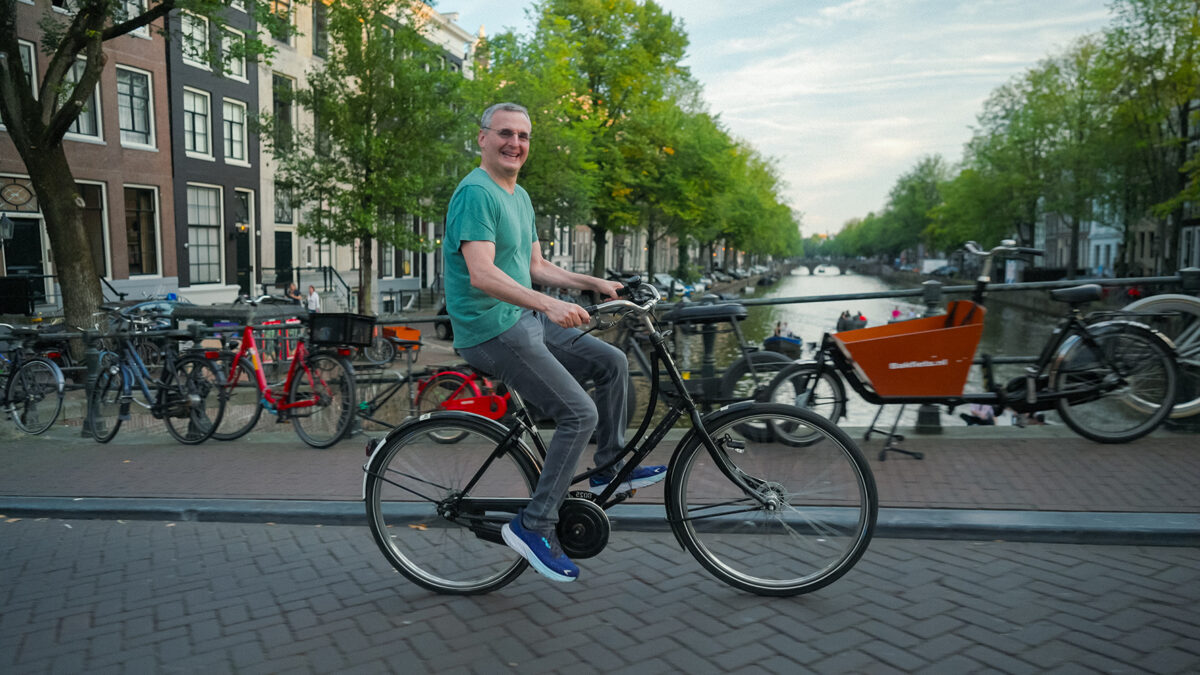 Phil Rosenthal filming on location in Amsterdam for Episode 801 of Somebody Feed Phil. Credit: Credit: Courtesy of Netflix / © 2025 Netflix, Inc.
Phil Rosenthal filming on location in Amsterdam for Episode 801 of Somebody Feed Phil. Credit: Credit: Courtesy of Netflix / © 2025 Netflix, Inc.
After dabbling as an actor in New York, Rosenthal moved over to the production side — and to Los Angeles, in 1989. He served as a writer on shows like Coach and Baby Talk before creating his sitcom Everybody Loves Raymond for Ray Romano, which ran from 1996-2005 (scoring 73 Emmy nods and two best comedy series wins). He directed President Bill Clinton in a 2000 White House Correspondents dinner video, and he won a Peabody Award for co-writing the 9/11 telethon America: A Tribute to Heroes. Then he did the project that had his heart.
In 2015, PBS debuted the six-episode series, I’ll Have What Phil’s Having — in which Rosenthal explores different travel destinations by way of food. Then, a reworked version of the show, Somebody Feed Phil, premiered on Netflix in January 2018. Rosenthal sold the series by describing himself in one line: “I’m exactly like Anthony Bourdain if he was afraid of everything.”
The long-running hit show, which released its eighth season on June 18 in 190 countries, follows Rosenthal’s comedic epicurean adventures in the U.S. and abroad — in culinary havens from Bangkok to Marrakesh to Las Vegas and Boston. Rosenthal is joined by leading experts, chefs and celebrity guests — like Silverton, who accompanied him to Brooklyn’s Peter Lugers, and Romano, who recently joined him in Sin City.
But to Rosenthal, his two-time Emmy Award- and James Beard Award-nominated show is about much more than food. “The real message is that I think the world would be better if we all could experience a little bit of other people’s experience,” he says. “And I’m using food and my stupid sense of humor to get you that real message. I’m trying to show you people in the world who are doing good, and who are loving and sweet and kind. And I think we need this today.”
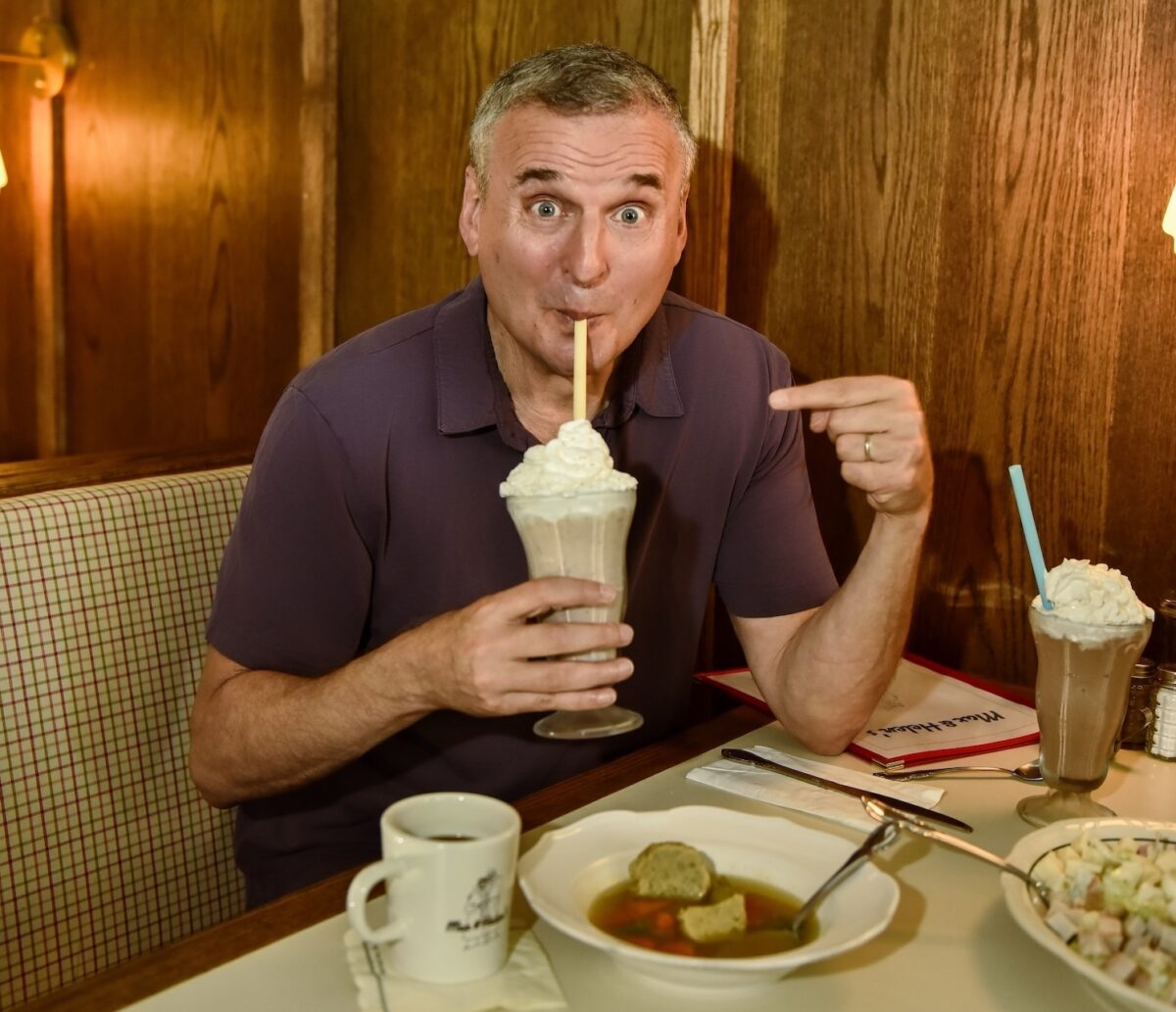 Phil Rosenthal Credit: Irvin Rivera
Phil Rosenthal Credit: Irvin Rivera
Each episode of the first two seasons ends with a video call Rosenthal makes to his parents, Max and Helen. “They were always the best part of the show, and they always delivered,” he says. “It was like Zooming with Robin Williams where you’re going to get big laughs as soon as they’re on. They’re funny without intentionally being funny. They start arguing, and I’m like, ‘You know we’re here watching you?’ … We all have parents. This is what people relate to.”
After Helen died in 2019, Max continued to appear until his own death in 2021. A tribute episode that aired in October 2022 honored both parents, and from the fifth season on, Rosenthal has called a celebrity guest to tell a joke in his dad’s honor.
Another key development in the fifth season was when Rosenthal visited Maine. In a May 2022 installment, he eats at Maine’s oldest diner, the 15-seat counter-only Palace Diner in Biddeford. “I was blown away,” he says of the small eatery, housed in a historic 1927 Pollard train car taken over by chefs from Gramercy Tavern. “All they did was elevate the simple dinner classics — eggs, tuna melt, burger — by using the best possible ingredients. I need this,” Rosenthal recalls telling himself. “I want this where I live.”
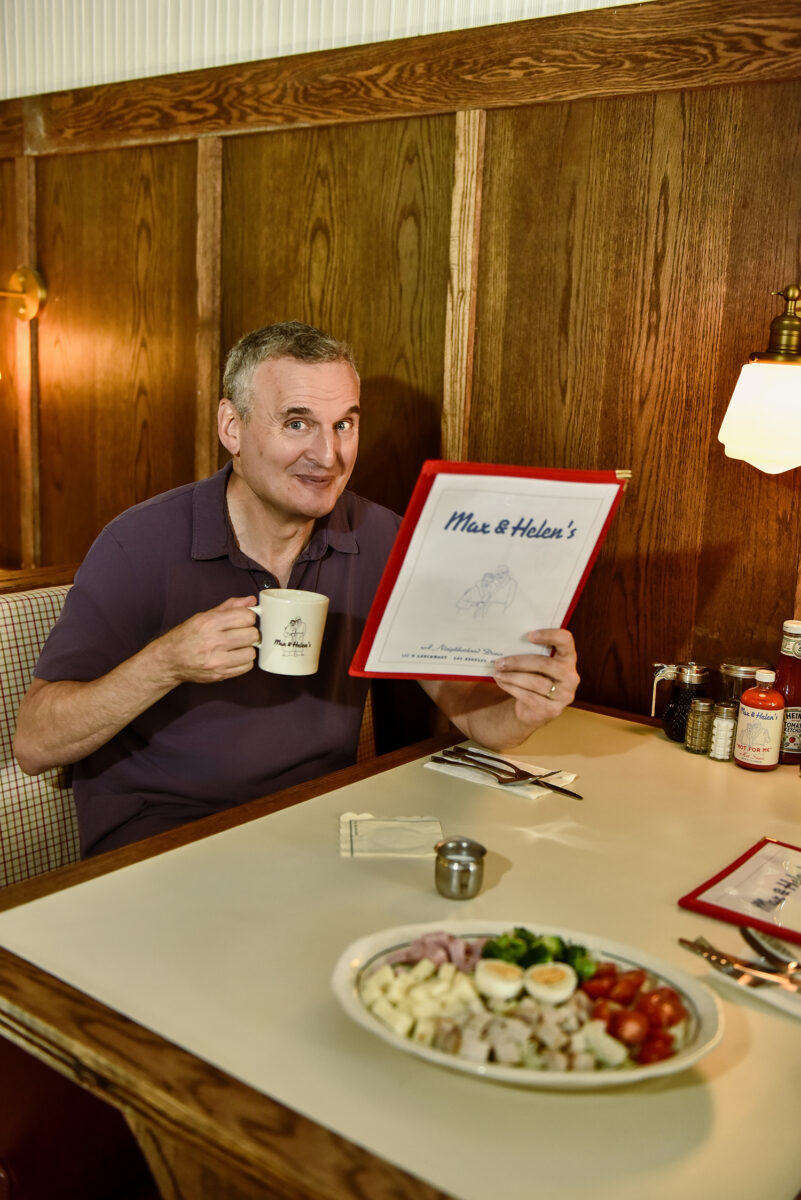 Phil Rosenthal with a cup of coffee.Credit: Irvin Rivera
Phil Rosenthal with a cup of coffee.Credit: Irvin Rivera
Diner food also tapped into something personal for him. “[My father’s] favorite thing in life was very soft scrambled eggs,” Rosenthal says. “He called them ‘fluffy.’ ‘My eggs fluffy?’ he would say to my mother. And she would say, ‘Max. First of all, I’m listening to the opera. And I’ve been making your eggs for 60 years. You think I know how to make them?’ Every day for 65 years of marriage.”
Then Rosenthal turns serious. “On [Max’s] tombstone, it says, ‘Are my eggs fluffy?’ And on the tombstone next to him, it says, ‘I’m listening to the opera.’ So the lesson for me was, ‘If you can find a simple joy in life like that, fluffy eggs, opera on the radio, maybe you’ll be happy every day.’ You don’t want much — you just want this simple thing. The diner is the simple thing,” he says.
A diner is Rosenthal’s favorite type of place. “It’s truly democratic with a small ‘d,’” he says. “Diners are disappearing in America, and that’s a shame. They hit all the price points — everyone can go to a diner; it can become the center of a community. And if you lose the diner, maybe you lose the center of the community and the community itself. And maybe you lose the country.” A gleam returns to his eyes as he sings with resolve: “So I’m gonna fix everything with this diner!”
——
EVERY MORNING, ROSENTHAL GOES for a walk on Larchmont Boulevard.
“I’m usually at Go Get Em [Tiger] with my friends, and I drink a coffee. I walk my dog, and we go,” says Rosenthal. “When I moved here, there were two diners on this street. They went away, in the ’90s.”
Since his visit to the Palace Diner, Rosenthal waited years for the right Larchmont Village space to free up. “On Larchmont, you can [only] go into an existing restaurant space,” he explains. Then, in December 2023, the 35-year-old restaurant Le Petite Greek at 127 Larchmont Blvd. closed. “I jumped on it,” says Rosenthal of the space now home to Max & Helen’s (maxandhelens.com).
Right after he’d returned from Maine, Rosenthal had approached Silverton with the idea. “She goes, ‘I’m in,’” he says. “Not even a not even a moment’s hesitation.”
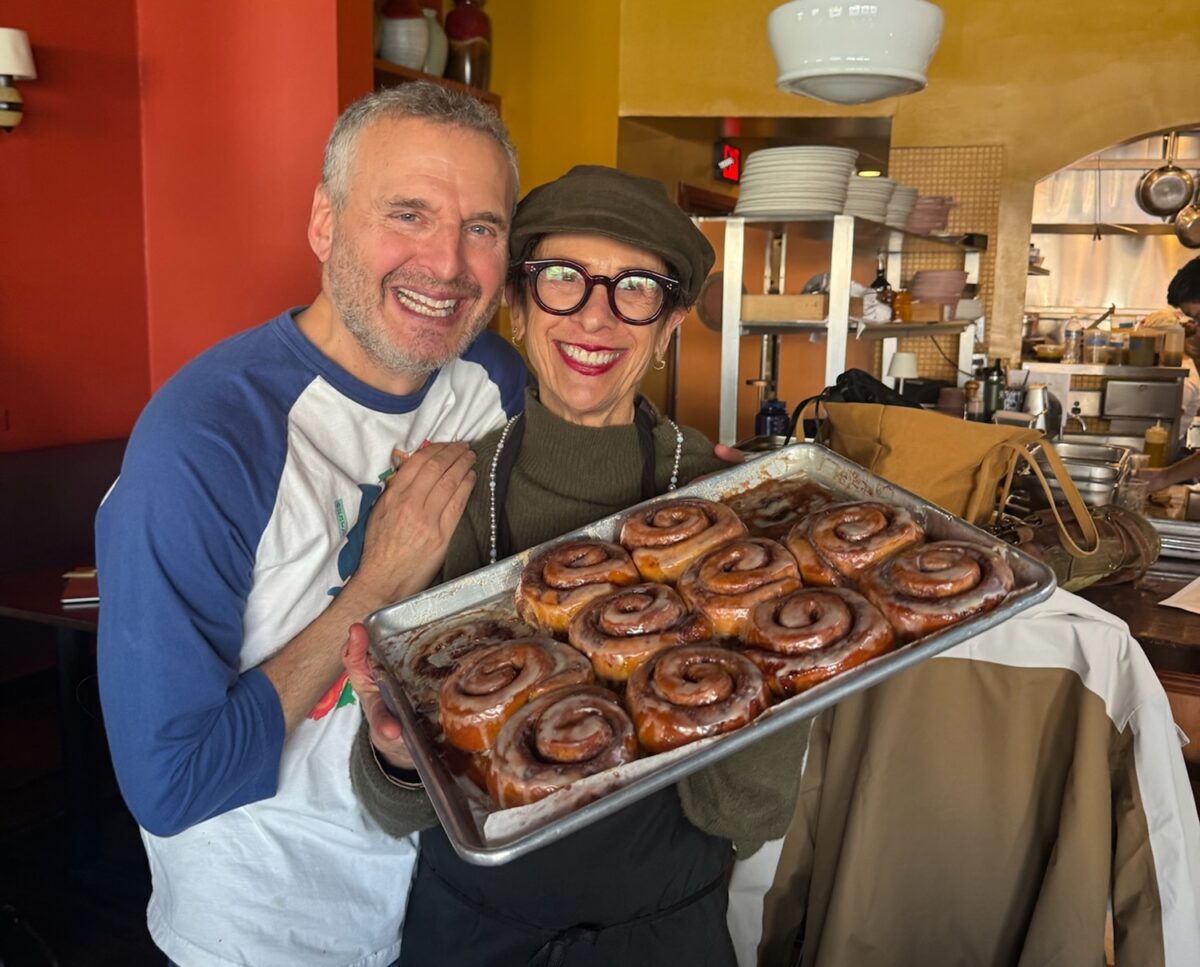 Phil Rosenthal with chef Nancy SilvertonCredit: Courtesy Nancy Silverton
Phil Rosenthal with chef Nancy SilvertonCredit: Courtesy Nancy Silverton
Silverton, who serves as executive chef, knew Rosenthal was passionate about this project for many reasons. “It was the passing of his father and wanting to honor both of his parents. It was his nostalgic love for diners and going to the Palace Diner and realizing how fantastic a contemporary diner could be,” she says. “But [it was] also his love of the neighborhood — meaning Larchmont. He [loved] the idea of opening a place that he could eat at, and contributing to his community.”
Despite living nearby, the four-time James Beard Award-winning chef may not have been the obvious choice. “Diners are an East Coast thing,” says Silverton, a Sherman Oaks and Encino native. “We had coffee shops,” she adds, clarifying that she means places like Dupars. “I was never a pancake eater, never a waffle eater.”
However, Rosenthal had faith that his favorite chef would create the best version of every single item — and they worked in tandem.
“He was very involved in every tasting,” says Silverton, who had to convince him to pare down the menu. “A contemporary diner is not like the old-fashioned diner where there were hundreds of choices.” Their offerings — now more concise — are made with top ingredients, such as Larder Baking Co. bread and Snake River Farms wagyu beef. Silverton notes, “It’s comfort food, but with quality ingredients and more technique than there was back in the diner age.”
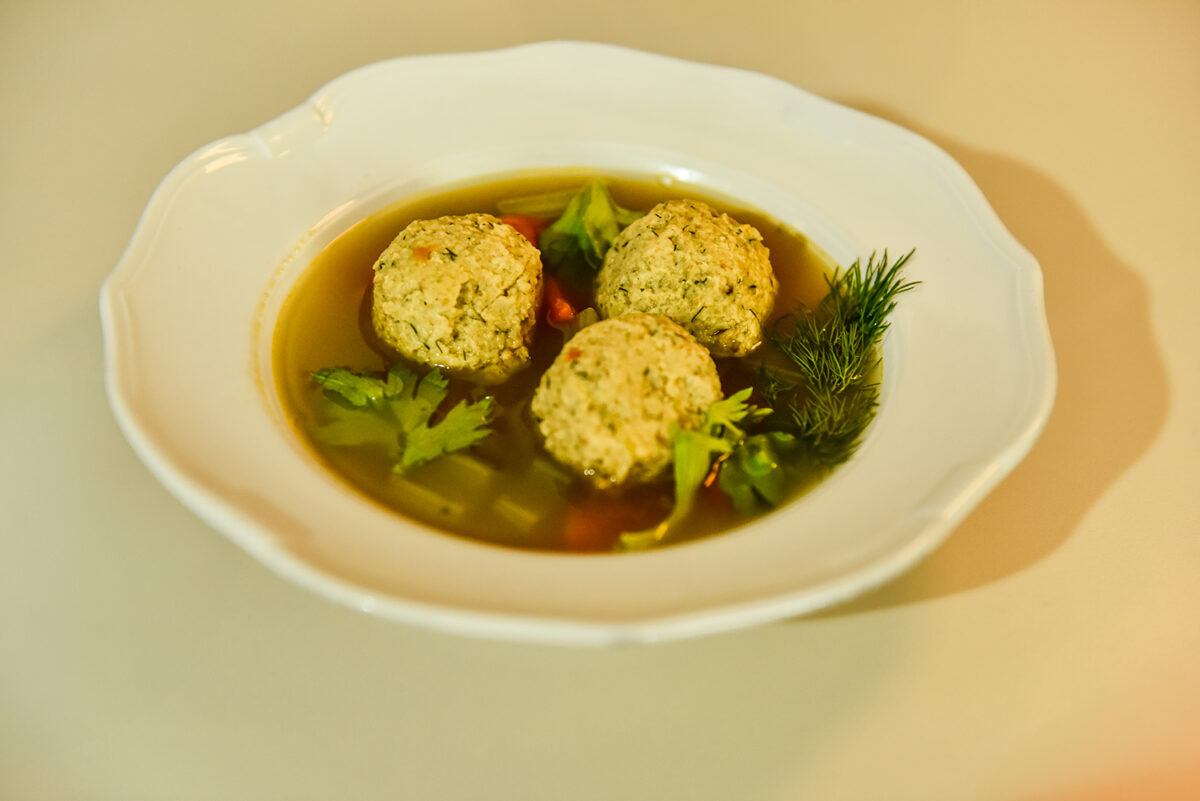 Max & Helen’s matzo ball soup with dill, inspired by Rosenthal’s mother’s recipeCredit: Irvin Rivera
Max & Helen’s matzo ball soup with dill, inspired by Rosenthal’s mother’s recipeCredit: Irvin Rivera
Rosenthal imagined elevated takes on traditional diner staples. “But this is Max and Helen’s, so I wanted their personality in it,” he says. “So Max’s Fluffy Eggs are on the menu. And Helen’s Matzo Ball Soup,” he says of his mother’s best dish, that even Daniel Boulud admired in an episode. “The Murray Dog is a hot dog named after my dog.”
Breakfast is served all day. Start with a cinnamon roll or a toasted bagel from their favorite place, Courage, with cream cheese and smoked salmon. (“The Jewish culture has crept into the diner culture,” Rosenthal notes.) Egg fans can try a New York-style bacon, egg and cheese sandwich; an omelet of the day; or the Larchmont grand slam. Other griddle items include French toast, pancakes and a waffle topped with “maple butter” (butter and maple syrup mixed together) — that’s made with an old-school waffle maker Silverton found and is already a staff favorite.
Cottage cheese is offered in place of the yogurt that Silverton points out wasn’t around then, and while avocado can be ordered as a side, there’s nothing as trendy as avocado toast here.
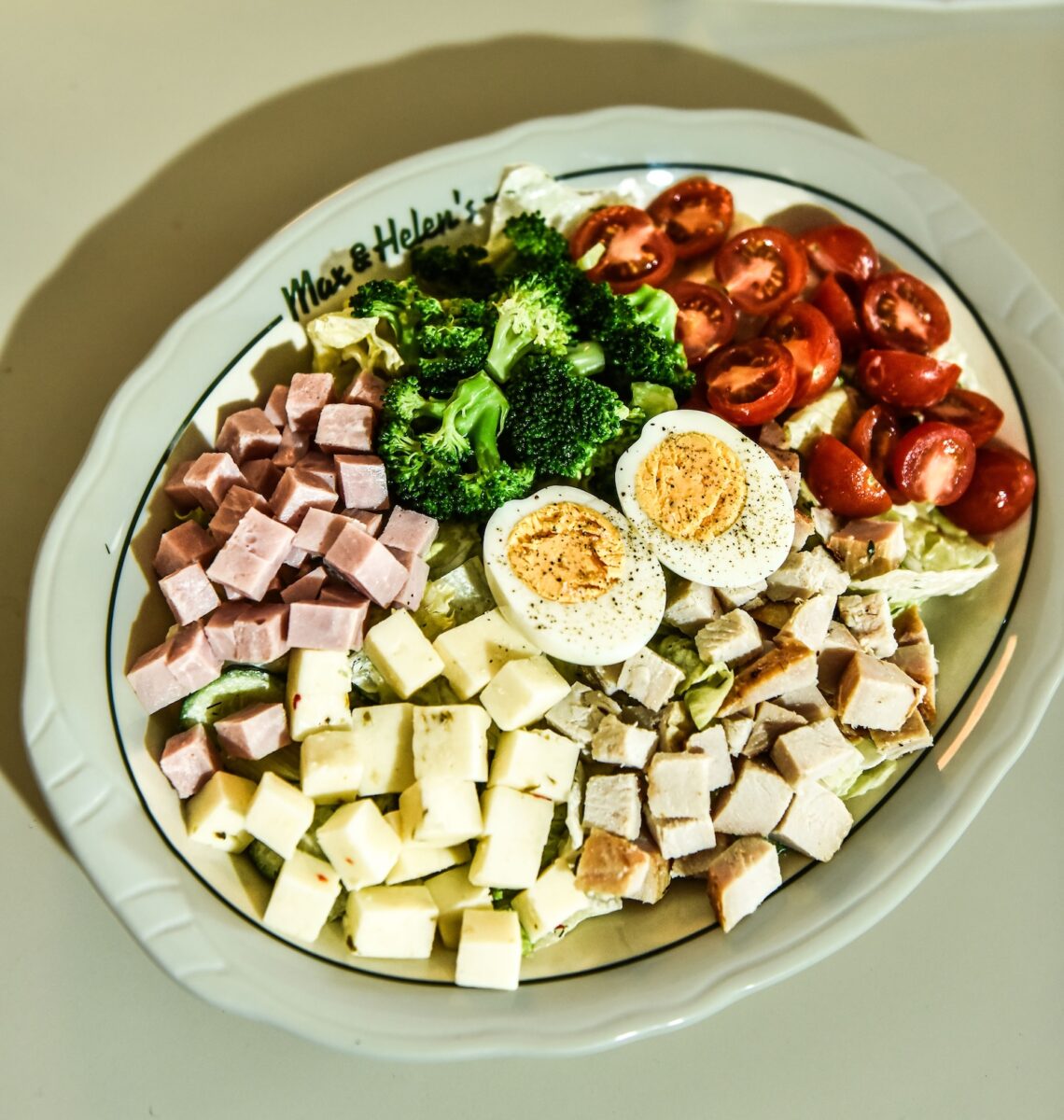 Max & Helen’s chef’s saladCredit: Irvin Rivera
Max & Helen’s chef’s saladCredit: Irvin Rivera
Lunch and dinner options include a chef’s salad with overflowing sections of pepper jack, ham, broccoli, tomato and cucumber; classic soups, from tomato to the matzoh ball seasoned with dill; and sandwiches, such as a hearty BLT, tuna melt and turkey club.
Rosenthal felt strongly about including his standard diner order, a cheeseburger deluxe, alongside Silverton’s favorite, the patty melt — though there was much debate over this.
“She goes, ‘I’m gonna do a patty melt. It’s so good, we don’t need a burger,’” Rosenthal says. What Silverton modeled after Ships Coffee Shop’s Ship Shape Burger (which she describes as “an incredibly juicy house-ground patty on a very buttery griddled rye bread [with] their version of secret sauce”) makes a strong case. Yet Rosenthal still wanted a burger. “But the patty melt might be one of the stars of the menu,” he says.
Entrees range from meatloaf to chili to a hot turkey dish with gravy — “one of Phil’s nostalgic dishes,” Silverton says. “When he was first asked, ‘Why did you want to open a diner?’ he said he wanted to have an open-faced turkey sandwich whenever he wanted.’”
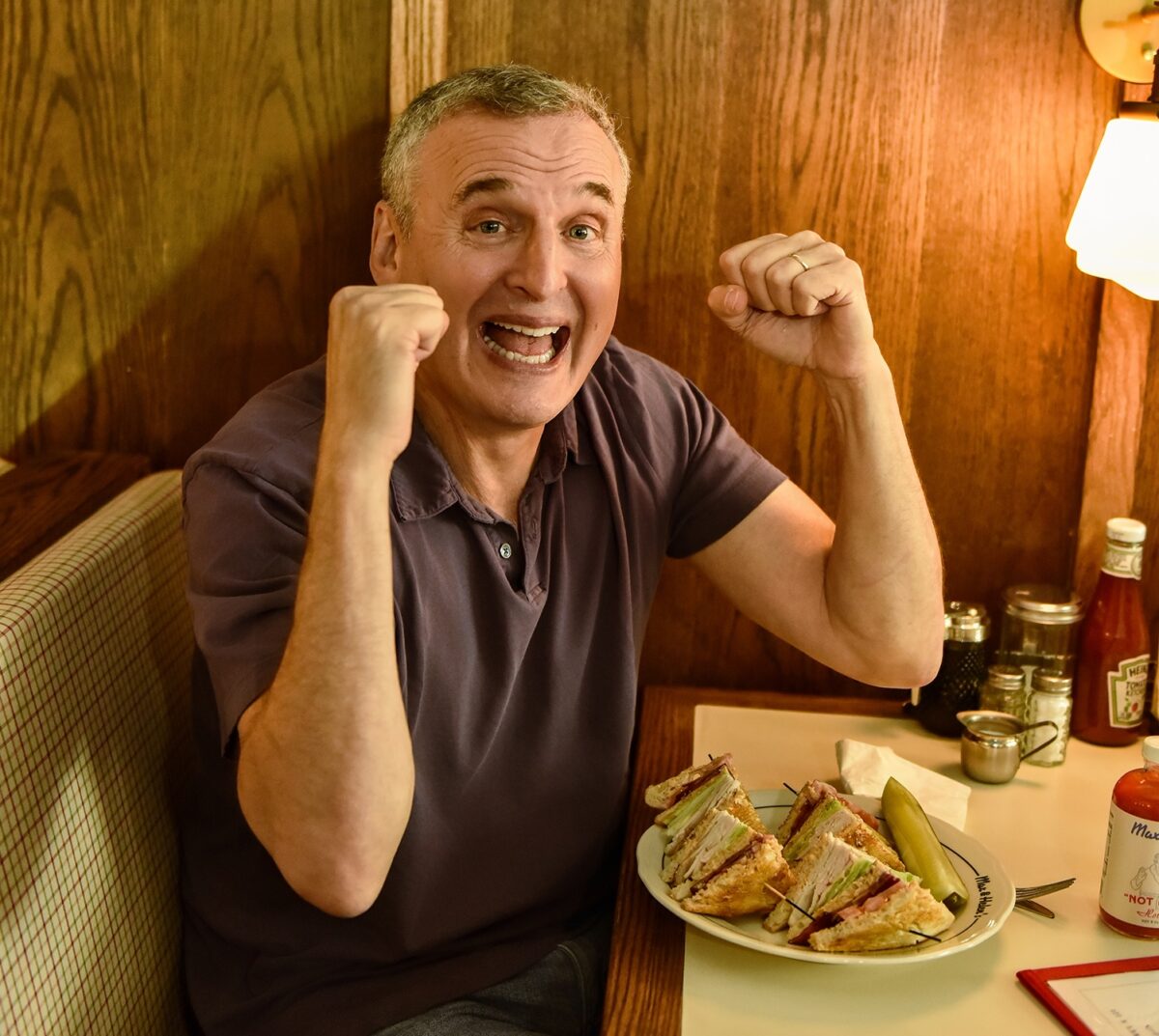 Phil Rosenthal cheers for the club sandwich.Credit: Irvin Rivera
Phil Rosenthal cheers for the club sandwich.Credit: Irvin Rivera
Another classic item they perfected are the milkshakes. “We went all over town finding the best shake,” says Rosenthal, who ventured with Silverton from Shake Shack to Fair Oaks Pharmacy in Pasadena. After realizing chopping the ice cream as it’s being blended gives it great consistency, Silverton created flavors ranging from a strawberry shake with homemade strawberry puree to an Oreo option that Rosenthal calls “the best cookies-and-cream anything I’ve ever had.” The diner also serves wine and beer.
For dessert, Silverton puts her spin on diner classics like chocolate pudding, Jell-O parfait and a triple-layer chocolate cake. And more dishes are ready to be introduced: “As we get more confident, [we’ll] add back the stuff we like,” Rosenthal says. “I already have dreams of other things.”
Silverton — who’ll next be opening Korean-Italian pasta bar Lapaba in Koreatown and just created a patio menu for Soho House West Hollywood — enjoyed the challenge of expanding her repertoire. “I had never made matzo ball soup before,” she says. “It is very new, but I’m very happy. And most importantly, Phil is really happy.”
——
FOR ROSENTHAL, THE DINER IS is a family affair. His daughter Lily, 28, serves as creative director, and she worked alongside designer Matt Winter (a vintage buff behind Firestone Brewery and the Petersen Automotive Museum’s Meyers Manx Cafe) to create what Rosenthal envisioned as a diner from 100 years ago.
“There’s so much wood, and these textures remind me of my grandparents’ house,” Lily says. She would ask herself: “Would my grandparents walk in and say, ‘Oy,’ or ‘Oh, that’s very nice.’ They like simple, not ungapatchka, which is over-the-top [in Yiddish]. We wanted everything to feel welcoming for that generation and all generations.”
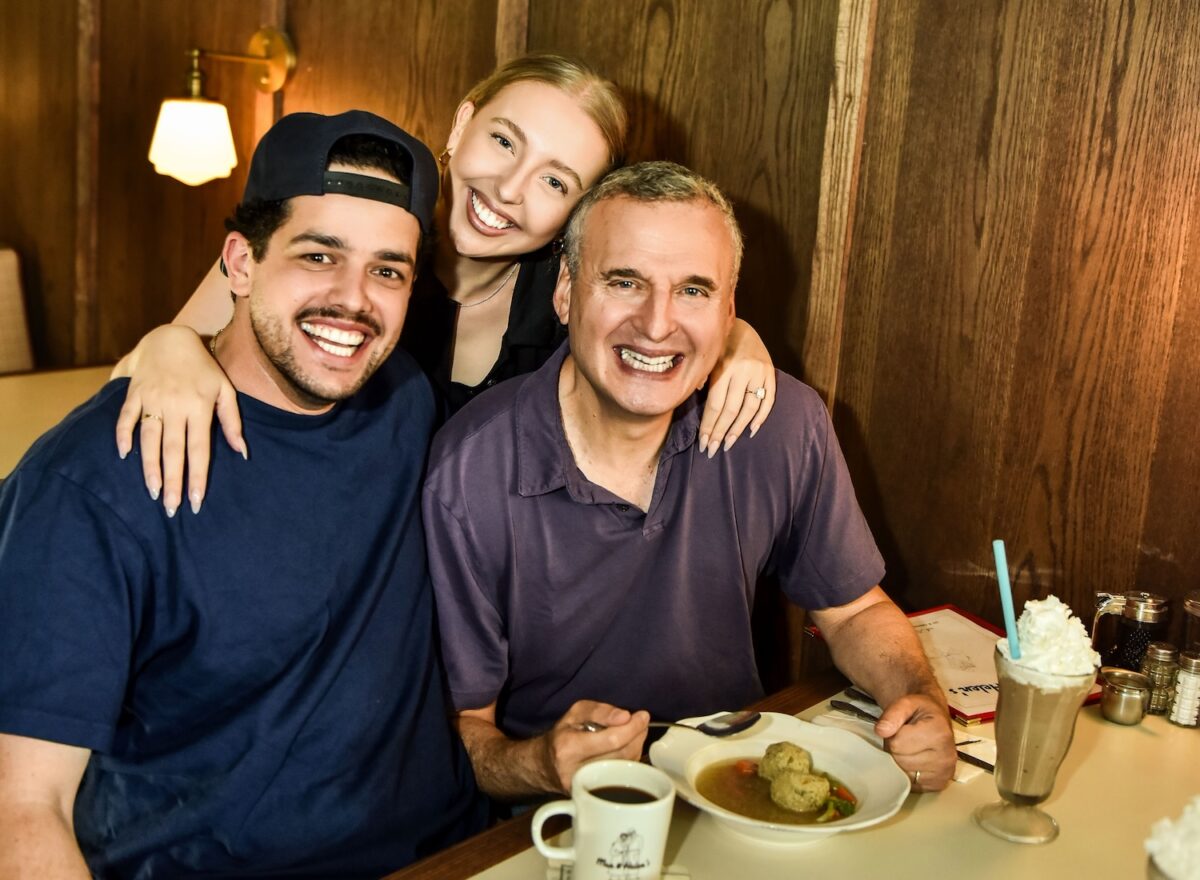 Phil Rosenthal, daughter Lily Rosenthal and chef Mason Royal, Lily’s husbandCredit: Irvin Rivera
Phil Rosenthal, daughter Lily Rosenthal and chef Mason Royal, Lily’s husbandCredit: Irvin Rivera
The 6,100-square-foot space, which seats 45 inside and 35 on the front patio, conjures a train car (à la the Palace Diner) with wooden booths and vintage fixtures. A counter with 1920s bar stools and classic soda fountains is lined with tile, and walls feature plaster with a detail Winter hand-combed to evoke post-WWI times. “Everything was plaster,” Winter says. “You didn’t have a lot of materials available in the ’20s.”
He also sourced antique frames. Says Lily: “I have all my grandparents’ old wedding and vacation photos, and we’re going to hang them in the restaurant. So you’ll really see who they are.” Cheeky illustrations of Max and Helen Rosenthal appear on napkins (which read “Oy, you spilled”) and hot sauce bottles (labeled “Not for Me”), as well as on the merchandise Lily oversees. Her new husband, chef Mason Royal, is managing the diner’s opening; former Chi Spacca GM Greer Glassman completes the team.
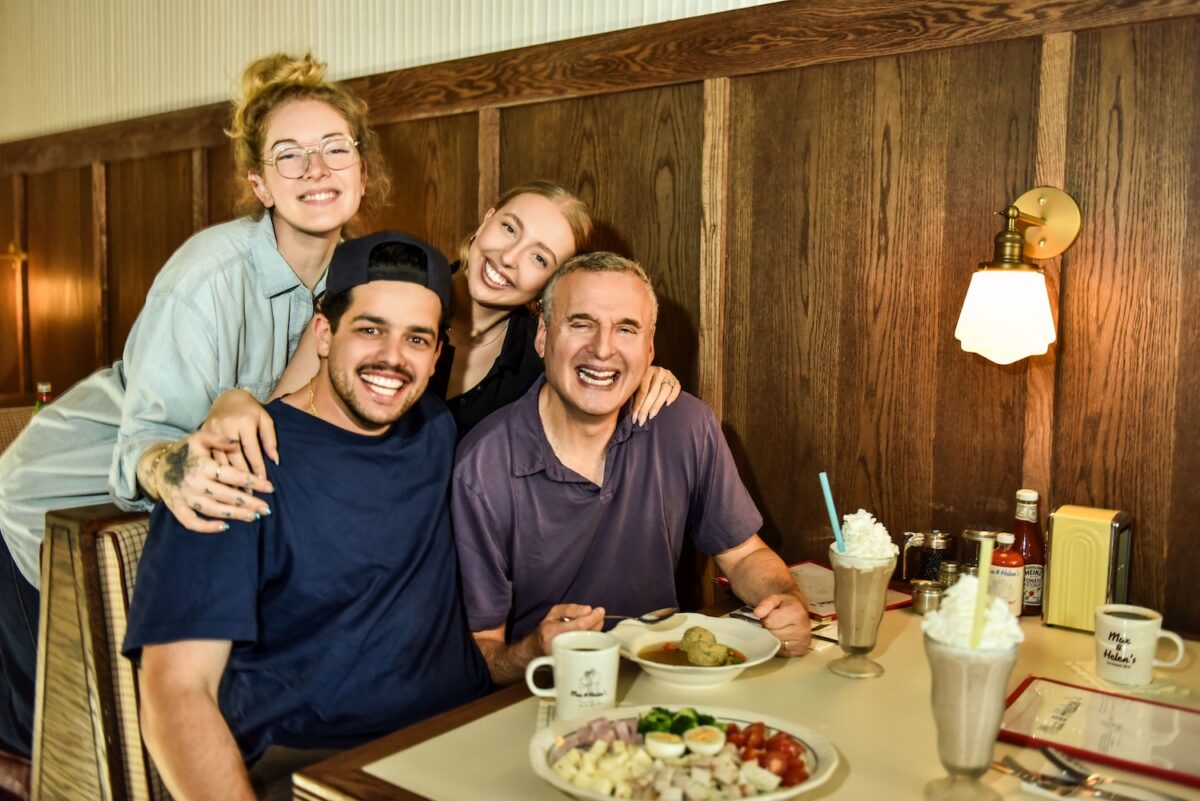 Greer Glassman, Lily Rosenthal, Mason Royal and Phil RosenthalCredit: Irvin Rivera
Greer Glassman, Lily Rosenthal, Mason Royal and Phil RosenthalCredit: Irvin Rivera
After starting renovations in February 2024, permits and inspections postponed things. “So it’s taken longer than we expected,” Lily says, “but it’s worth the wait.”
Arriving at an opening date for Max and Helen’s (slated to debut mid-November) proved challenging: Rosenthal is currently on a North American tour through 25 cities until November. The New York Times bestselling author is launching two books — his second cookbook, Phil’s Favorites (out Nov. 4 from Simon Element), featuring recipes from chefs he’s met as well as family and friends, and a second children’s book with Lily, Just Try It! Someplace New! (out March 2026). And he hosts a podcast with Rolling Stone’s David Wild called Naked Lunch. The multihyphenate has no intention of slowing down.
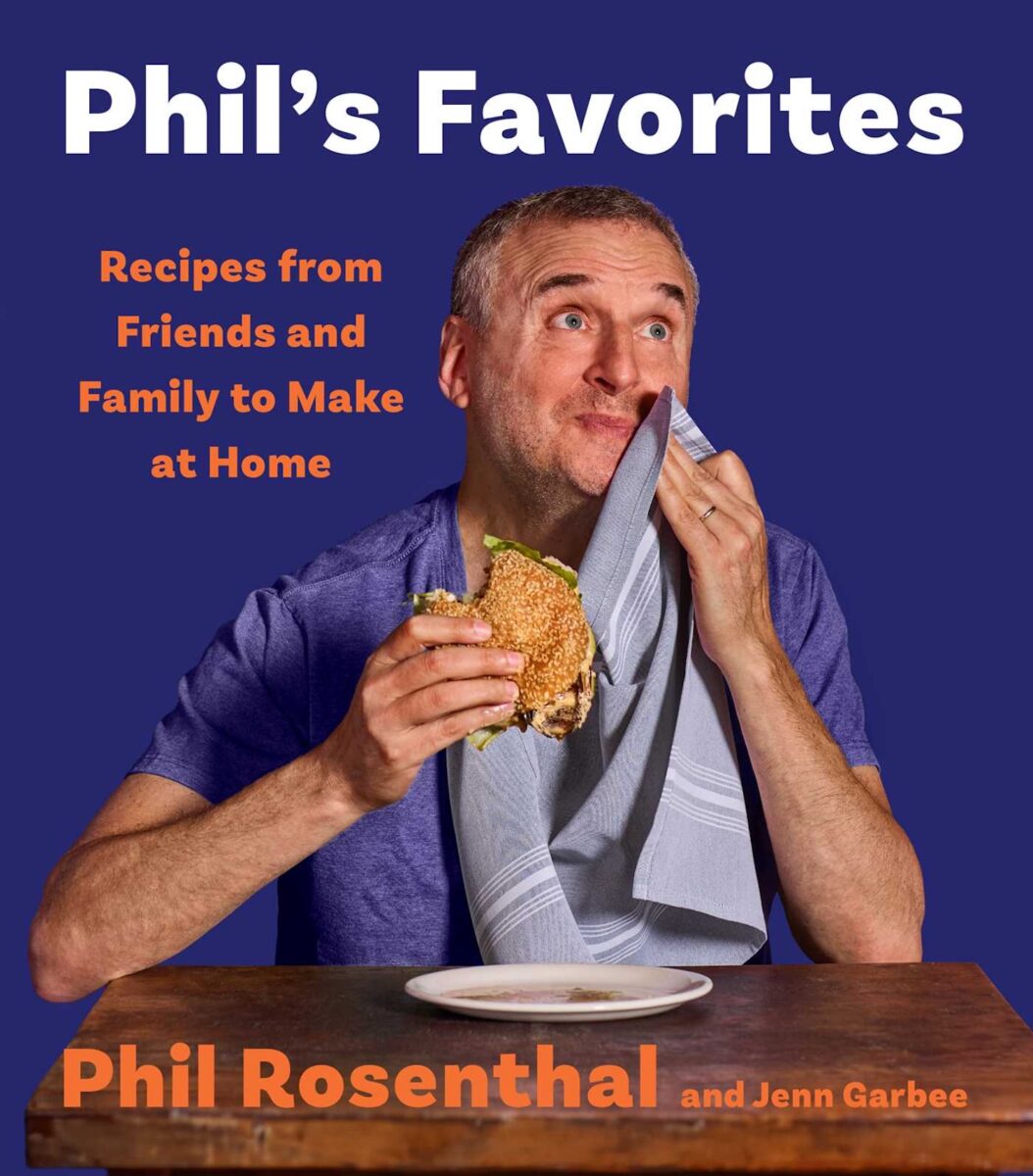 Rosenthal’s second cookbook, Phil’s Favorites, is out Nov. 4 from Simon Element.Credit: Phil Rosenthal
Rosenthal’s second cookbook, Phil’s Favorites, is out Nov. 4 from Simon Element.Credit: Phil Rosenthal
At 65, Rosenthal aims to keep traveling and hosting Somebody Feed Phil. “I feel like it’s my life’s work now,” he says. “It’s about connecting with people, and the audience is telling me we need it. So I’ve got to keep doing it as long as I can.”
He hopes Max & Helen’s proves just as essential. “If we’ve done our job, it’s a gift to the neighborhood,” he says of a project that’s also clearly a gift to his parents.
“I wish I could do more for them than just name a diner after them. I wish I could bring them back,” Rosenthal says. “But this is my way of bringing them back and having them with me every day.”
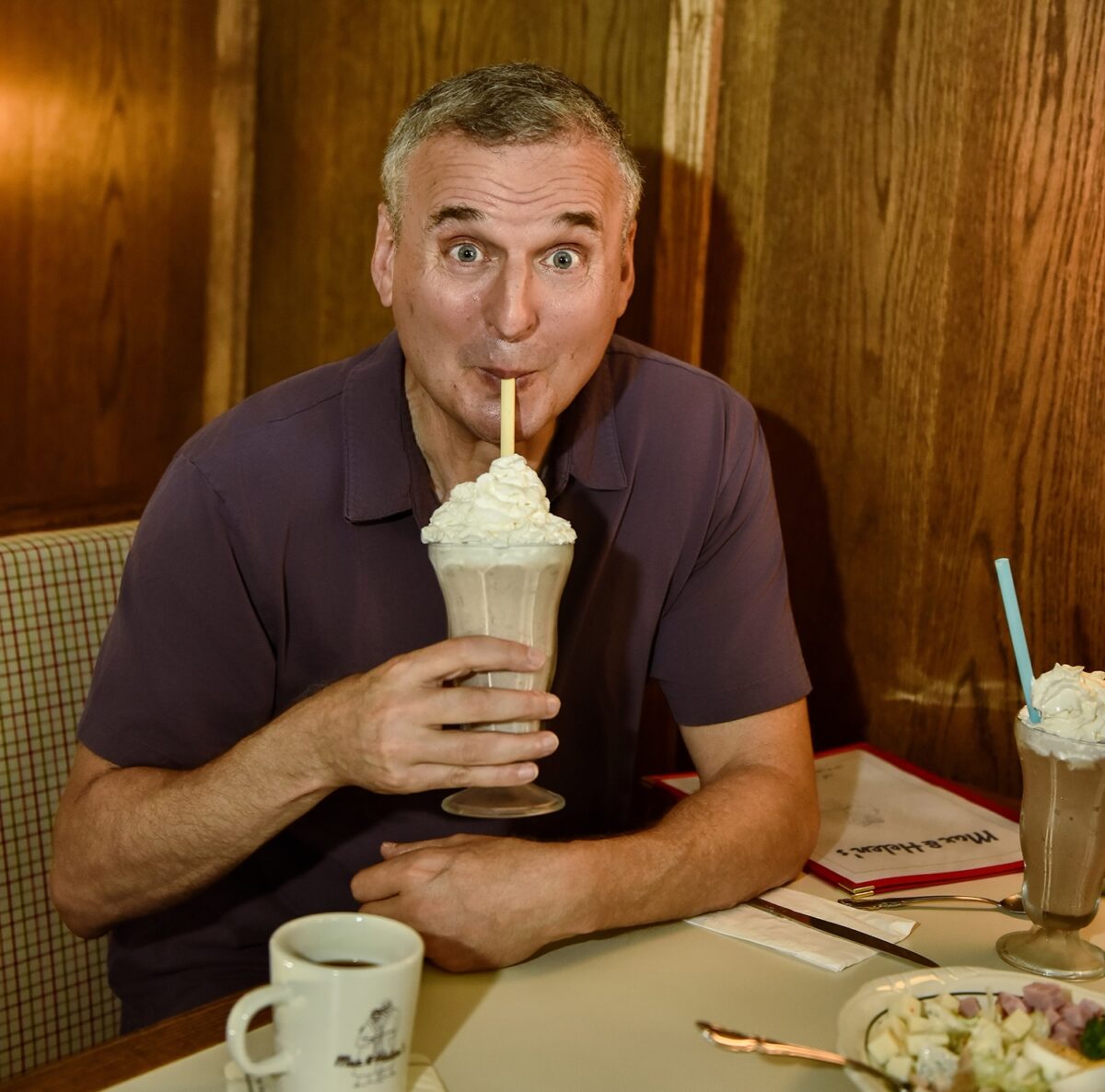 Phil Rosenthal sips a chocolate shake at his new diner, Max & Helen’s.Credit: Photographed by Irvin Rivera
Phil Rosenthal sips a chocolate shake at his new diner, Max & Helen’s.Credit: Photographed by Irvin Rivera

